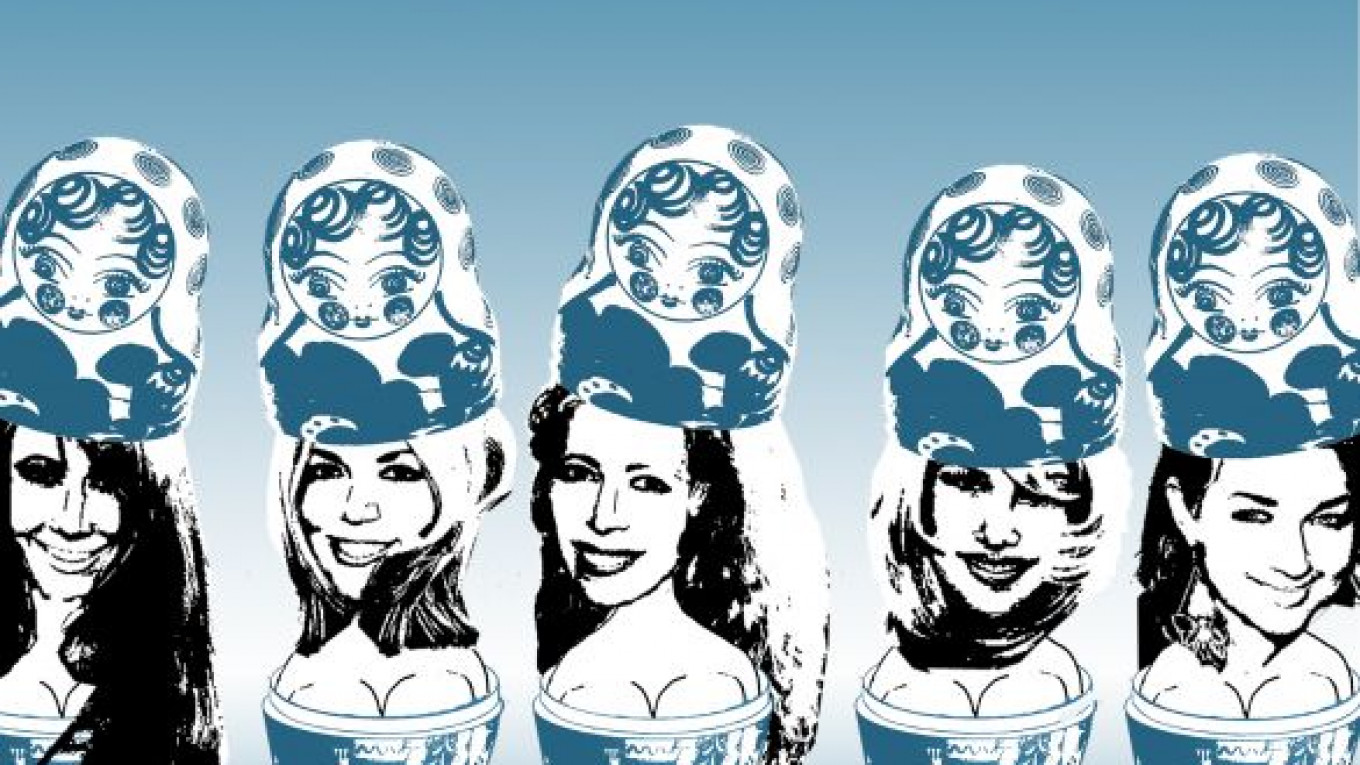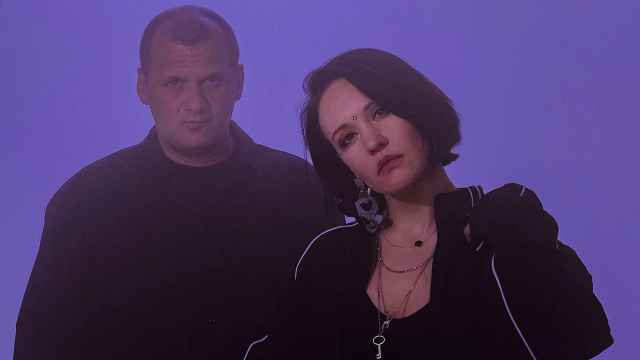This week was the first episode of reality show “Russian Dolls” on the U.S. Lifetime channel, which could not have been more hotly anticipated, at least by me. A show looking at the lives of the Soviet emigres who settled in New York’s Brighton Beach and turned it into a strange replica of home is a brilliant idea. Although the brash trailer with the blondes and cliches about the Russians coming announced that this might not be the most nuanced account.
The first episode introduced some of the characters, who are almost all blond and favor low-cut clothing. There is blond Diana, 23, who is already feeling the pinch of parental pressure to get married but has an unsuitable boyfriend, who is, shock, Spanish. Then there is blond Marina, whose family runs “the most famous Russian nightclub in the world” called Rasputin, and whose mother-in-law, blond Eva, is, like, so embarrassing because she wants to take part in a competition for the most glamorous babushka.
So far, the characters have not cracked open a volume of Dostoevsky or brooded over a decanter of vodka. And none of the women seem to have anything you would class as a job. Instead, they had fun at a banya, oddly enough dressed in swimsuits, as if naked steam rooms might be too much of a culture shock for viewers. Marina browsed huge and sparkly jewelry “Gorgeous! Big and blingy — definitely Russian style,” she enthused. And Diana worried about her love life, sitting in a plastic-tabled cafe that was the most authentically Russian looking location.
The first episode had just one other scene that I recognized from a brief trip to Brighton Beach — surely a rather melancholy place — showing fur-coated and hatted pensioners taking the sun on the boardwalk.
The show has sparked some controversy in the United States because it does not mention that most — or all — the characters are Jewish. Although a Star of David dangles from Diana’s neck and the area has a clearly Jewish identity from its history as the first port of call for Soviet emigres allowed to leave because of Jewish roots. But delving into the various kinds of Russian/Jewish/American identity might be a bit too complex for this show, which just mentions in passing that several characters actually come from Ukraine, not Russia.
My favorite part so far was a trio of women, Marina and two of her “friends” who were all of unnamed age and had seriously groomed hair. They sat around a table, speaking English somewhat stiltedly, talking about Marina. “You are what you think you are. If you think you are young and adorable, that is the deal,” Renata said charmingly, while the other friend explained how Marina feels that she is the “centerpiece” of Brighton Beach.
Diana, who left 20 years ago when she was 3, was a more bland proposition. “I believe in plastic surgery,” she said earnestly, and talked of her desire of becoming a “hot mom” by the age of 25. You certainly can’t get more Russian than that, the only place I’ve seen where women push carriages in hot pants.
The older generation is represented not by the huddled characters on the boardwalk, but by Eva, whose son Michael is married to Marina. She explains in English short on definite articles that she used to be an engineer and wants to take part in a talent contest for grannies because “all my life I loved to sing and dance, but I never had the chance to do this in Russia.” Certainly the Soviet authorities would have looked askance at her choice of outfits for the show: leopard skin, pink satin or her favorite, a belly dancing outfit. “It’s way too revealing,” Marina sighs, admonishing her for showing flesh. “All my costumes are sexy, what to do?” Eva muses. Eventually, she went for the leopard skin.
A Message from The Moscow Times:
Dear readers,
We are facing unprecedented challenges. Russia's Prosecutor General's Office has designated The Moscow Times as an "undesirable" organization, criminalizing our work and putting our staff at risk of prosecution. This follows our earlier unjust labeling as a "foreign agent."
These actions are direct attempts to silence independent journalism in Russia. The authorities claim our work "discredits the decisions of the Russian leadership." We see things differently: we strive to provide accurate, unbiased reporting on Russia.
We, the journalists of The Moscow Times, refuse to be silenced. But to continue our work, we need your help.
Your support, no matter how small, makes a world of difference. If you can, please support us monthly starting from just $2. It's quick to set up, and every contribution makes a significant impact.
By supporting The Moscow Times, you're defending open, independent journalism in the face of repression. Thank you for standing with us.
Remind me later.






